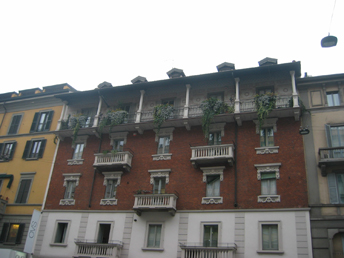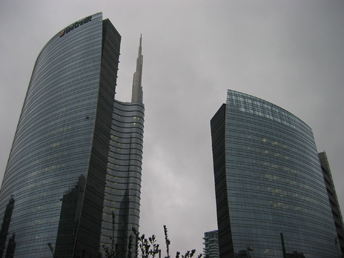About Milan
Milan is not only one of the most beautiful Italian cities but it is also considered the Italian economic and finance center, with the headquarter of the Stock Exchange and of many of the most important industrial and financial businesses of Italy, having a population of 1.3 million.
It is also the Italian symbol of fashion and design: it hosts many of the main Italian fashion maisons and international design fairs, such as " Settimana della Moda" (Milan Fashion Week) and the "Salone Internazionale del Mobile" (Milan Furniture Fair).
Milan is rich of universities, research institutions, and art schools that attract students from around the world.
The city offers to visitors the possibility to admire a wide range of monuments, museums and buildings reflecting the vestiges of history and culture left by the people who lived here.
The origin of Milan is to be traced back to the early part of the 4th century B.C. and a first settlement of Insubric Gauls. The name of the settlement, later Latinised to Mediolanum, indicated the central position of the site (middle place).
 |
|
|
 |
The ancient Roman remains, the Duomo, one of the largest cathedrals in the world and an important example of Gothic architecture in Italy. The Castello Sforzesco that hosts the Michelangelo’s “Pieta
Rondanini”. The church of Santa Maria delle Grazie where is the famous masterpiece “The Last Supper” by Leonardo da Vinci. Expo 2015 is the next scheduled Universal Exposition
and between 1 May and 31 October 2015 will be hosted in Milan. The Expo goal is no longer to show the latest advances in technology, but rather to address the challenges that human
mankind faces nowadays. The Expo’15 theme will be: Feeding the planet, energy for life. It would be therefore great hosting BMSD 2015 in Milan, an particularly at Politecnico di Milano,
founded in 1863. Many important scientists and architects studied and taught there, among them Achille Castiglioni, Gio Ponti, Renzo Piano and Aldo Rossi, both Pritzker Prize in 1990
and 1998 respectively, and Giulio Natta, Nobel Prize in Chemistry in 1963. Politecnico takes part in several research and training projects collaborating with the most qualified European
universities. Politecnico’s contribution is increasingly being extended to other countries: from North America to Southeast Asia to Eastern Europe.
|